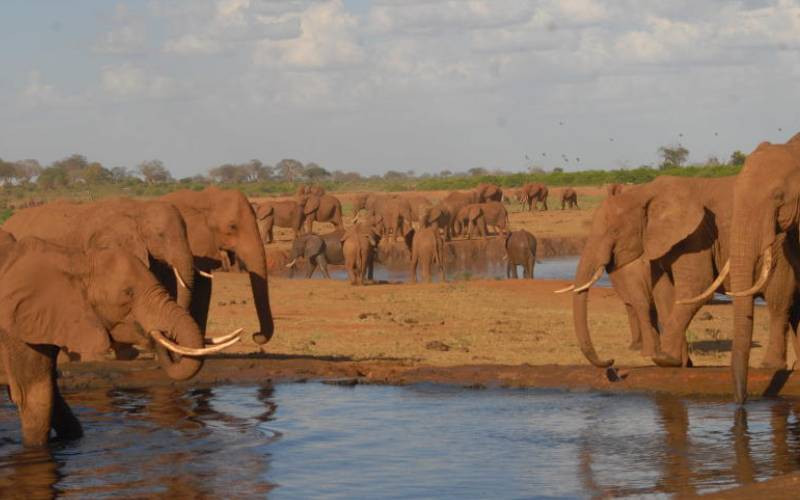
Tourism players at the Kenyan Coast have expressed concern over the unfolding dispute between Kenya and Tanzania over cross-border tourism.
The two countries have lately imposed restrictions against each other on access to airports and game parks.
The giant Kenya Association of Hotelkeepers and Caterers (Kahc) said in Mombasa Monday that the East African Community (EAC), to which both nation’s belong, can harness much more potential through unity.
Tanzania newspaper Daily News in an editorial has also dismissed the tussle as “uncalled for” and illogical.
Despite belonging to EAC, Tanzania also belongs to the South African Development Community, the only nation in East Africa to belong to both blocs.
Tanzania has been reluctant to implement some EAC policies and is believed to be more committed to SADC than EAC, whose other members are Tanzania, Rwanda, Burundi and Uganda.
Friendly states
‘’We as a region have talked about integration. Tanzania with the largest landmass in terms of square kilometres has always lagged behind and their initial decision to ban Kenyan tour operators from accessing their national parks is not good at all,’’ KAHC Coast branch chief executive officer Sam Ikwaye said, as he called for a sober approach to solve emerging issues that could intensify tourism trade wars between the two friendly states.
‘’Tanzania should know that we share resources and the common wildlife do not know boundaries as they keep roaming the jungles within the region,’’ Mr Ikwaye said.
He added that EAC is a well thought out idea and provides immense potential for economic growth that could turn-around the fortunes of the regional bloc.
The cold war between the two countries started last Christmas when Kenya introduced an order barring Tanzanian vehicles from either picking or dropping tourists at its airports.
The order, which came into force on December 22 last year, triggered an uproar among Tanzanian tour operators.
Tanzanian media, however, notes that Kenya Airports Authority (KAA) issued the directive on November 20 last year based on the 1985 tourism pact between Tanzania and Kenya.
Reports indicate that during the meeting in which KAA allegedly made the decision, it was acknowledged that under the 1985 agreement, businesses such as transfers by visiting Kenyan tour operators were not allowed in Tanzania.
Stay informed. Subscribe to our newsletter
After discussing the agenda, the meeting resolved that the provisions of the agreement should similarly be applied in Kenya.
On Sunday, the East African Business Week quoted Tanzania Natural Resources and Tourism Minister, Lazaro Nyalandu lamenting than Kenya’s ban violated past agreements between the two nations.
Border post
“The government (of Tanzania) is also shocked by Kenya’s decision because airports are not part of the agreements involving the two sister countries,” he was quoted saying.
According to the newspaper, the two nations have held fruitless talks over the reopening of the Bolongoja border post that lies between Serengeti National Park and Maasai Mara Game Reserve in Kenya, which the Tanzanians closed as the defunct East Africa Community was falling apart in the mid 1970s.
Tanzanian media, including the Arusha Times, declared Kenya’s ban of Tanzanian tour vehicles from Jomo Kenyatta International Airport a retaliation for Tanzania’s recent ban on Kenyan tour vehicles in its game parks.
The Daily News suggests that both nations could be misinterpreting the 1985 agreement and engaging in a trade war in which both will lose. The newspaper says the two countries would be better off co-operating than fighting.
Tanzania estimates that nearly 40 per cent of the 1,000,000 tourists visiting the country annually pass through JKIA, earning the economy US$1.9 billion.
Tanzanian drivers protested over Kenya’s sudden order, saying it had inflicted untold anguish and confusion among tourists traveling to Tanzania via JKIA.
Tanzanian Natural Resources and Tourism Minister Lazaro Nyalandu said Kenya would go down in the annals of history as a pioneer in denying its neighbour’s vehicles permission to pick or offload travelers at its airports.
“We have never restricted operators from our northern neighbour to access any area, save for national parks as is stipulated in the 1985 tourism agreement,” Mr Nyalandu said.
 The Standard Group Plc is a
multi-media organization with investments in media platforms spanning newspaper
print operations, television, radio broadcasting, digital and online services. The
Standard Group is recognized as a leading multi-media house in Kenya with a key
influence in matters of national and international interest.
The Standard Group Plc is a
multi-media organization with investments in media platforms spanning newspaper
print operations, television, radio broadcasting, digital and online services. The
Standard Group is recognized as a leading multi-media house in Kenya with a key
influence in matters of national and international interest.
 The Standard Group Plc is a
multi-media organization with investments in media platforms spanning newspaper
print operations, television, radio broadcasting, digital and online services. The
Standard Group is recognized as a leading multi-media house in Kenya with a key
influence in matters of national and international interest.
The Standard Group Plc is a
multi-media organization with investments in media platforms spanning newspaper
print operations, television, radio broadcasting, digital and online services. The
Standard Group is recognized as a leading multi-media house in Kenya with a key
influence in matters of national and international interest.










